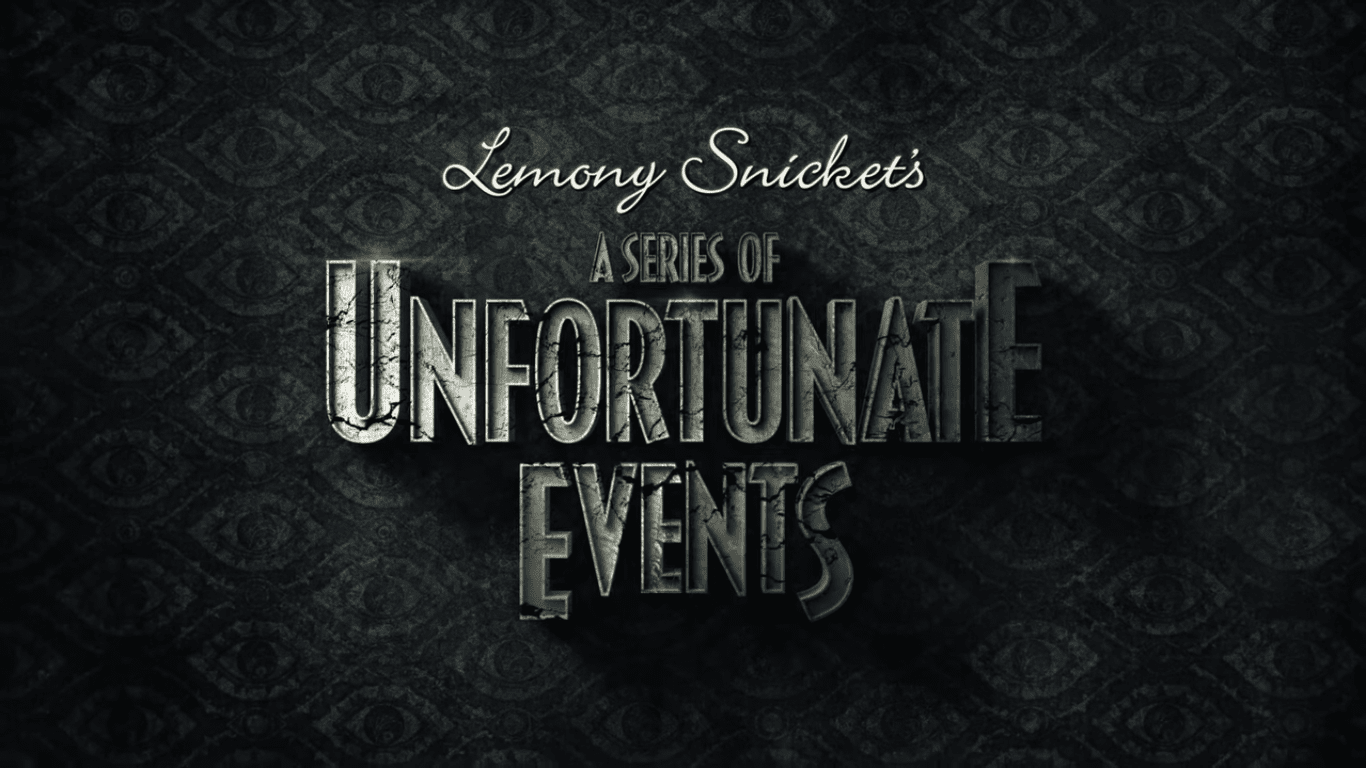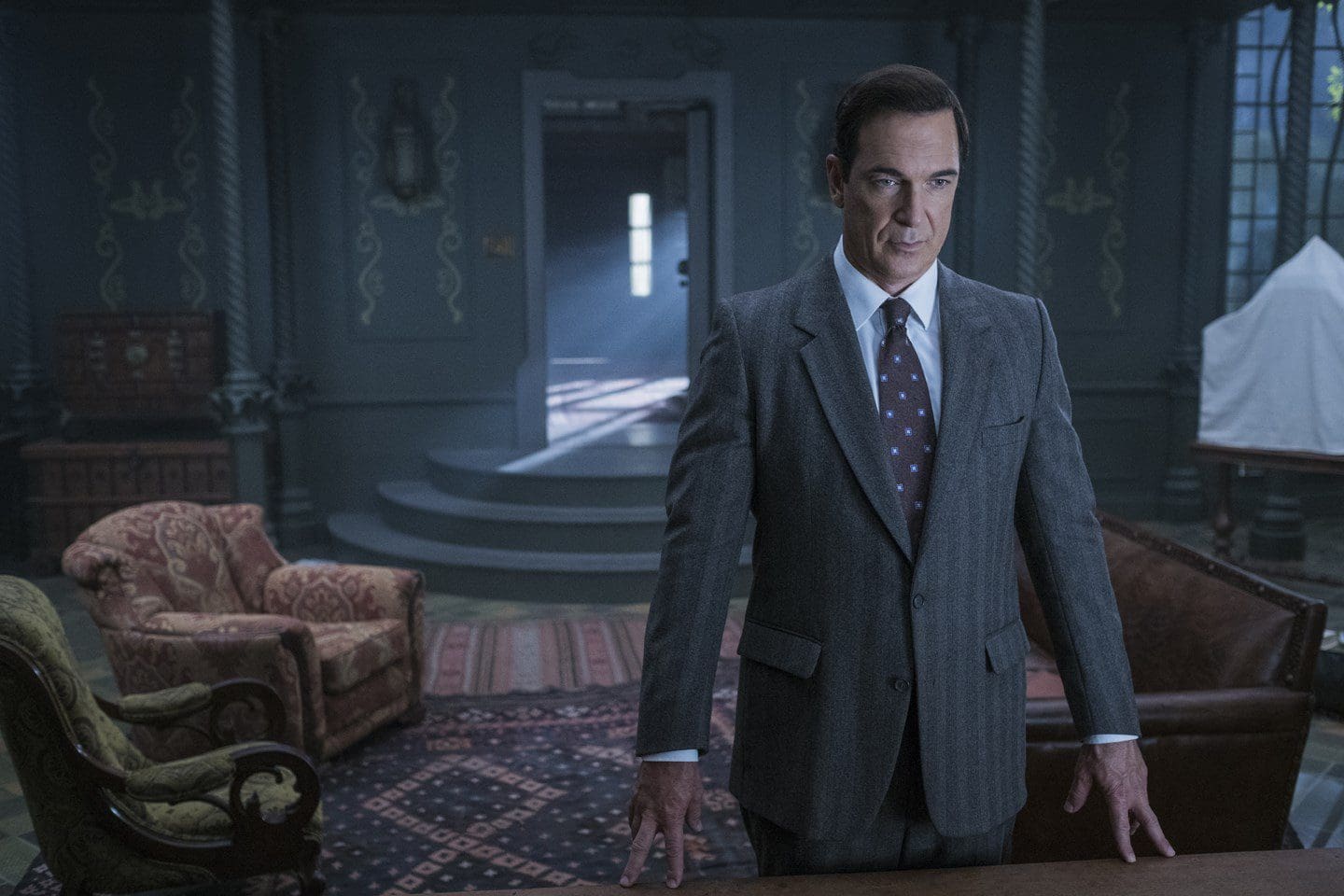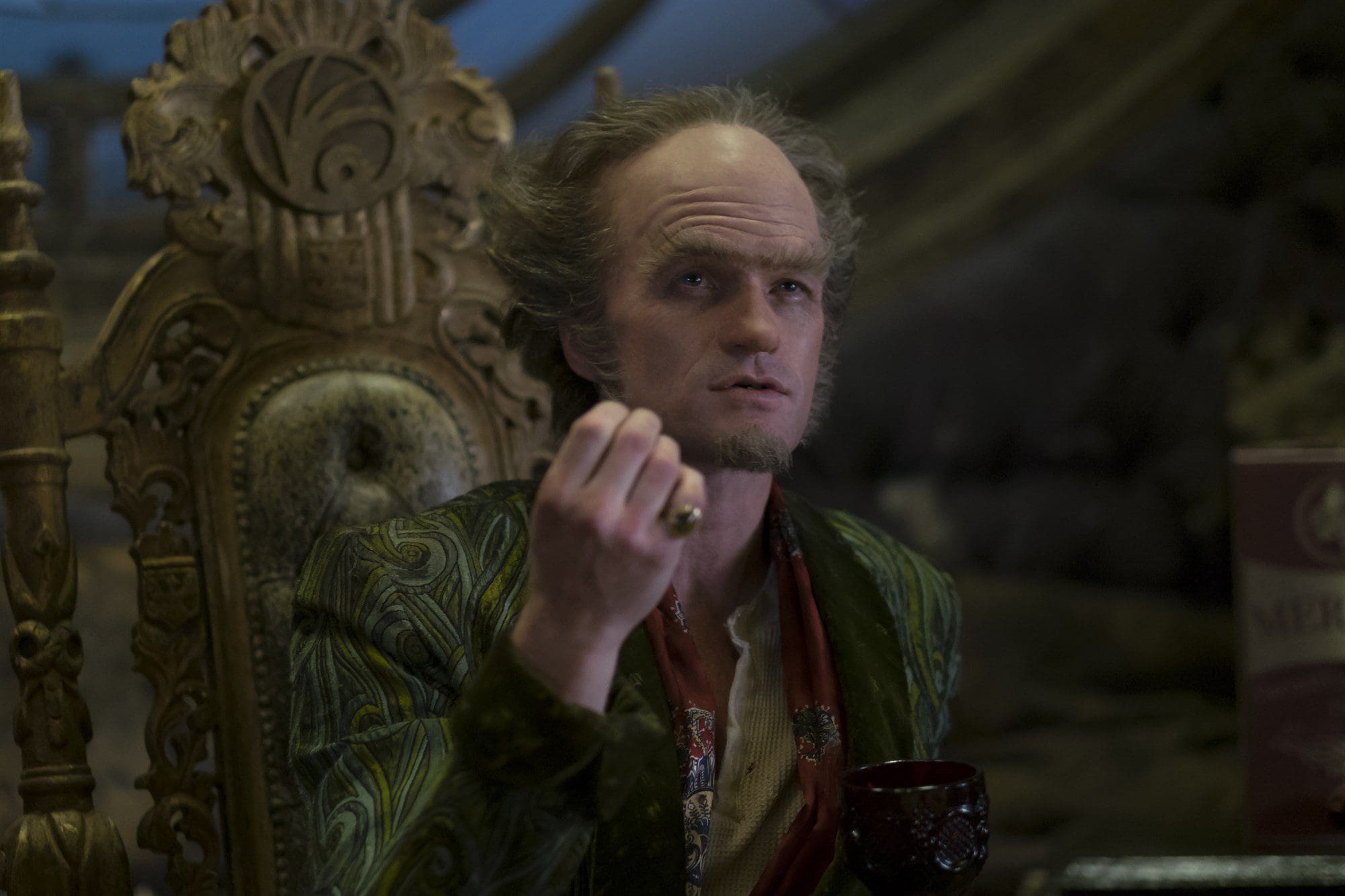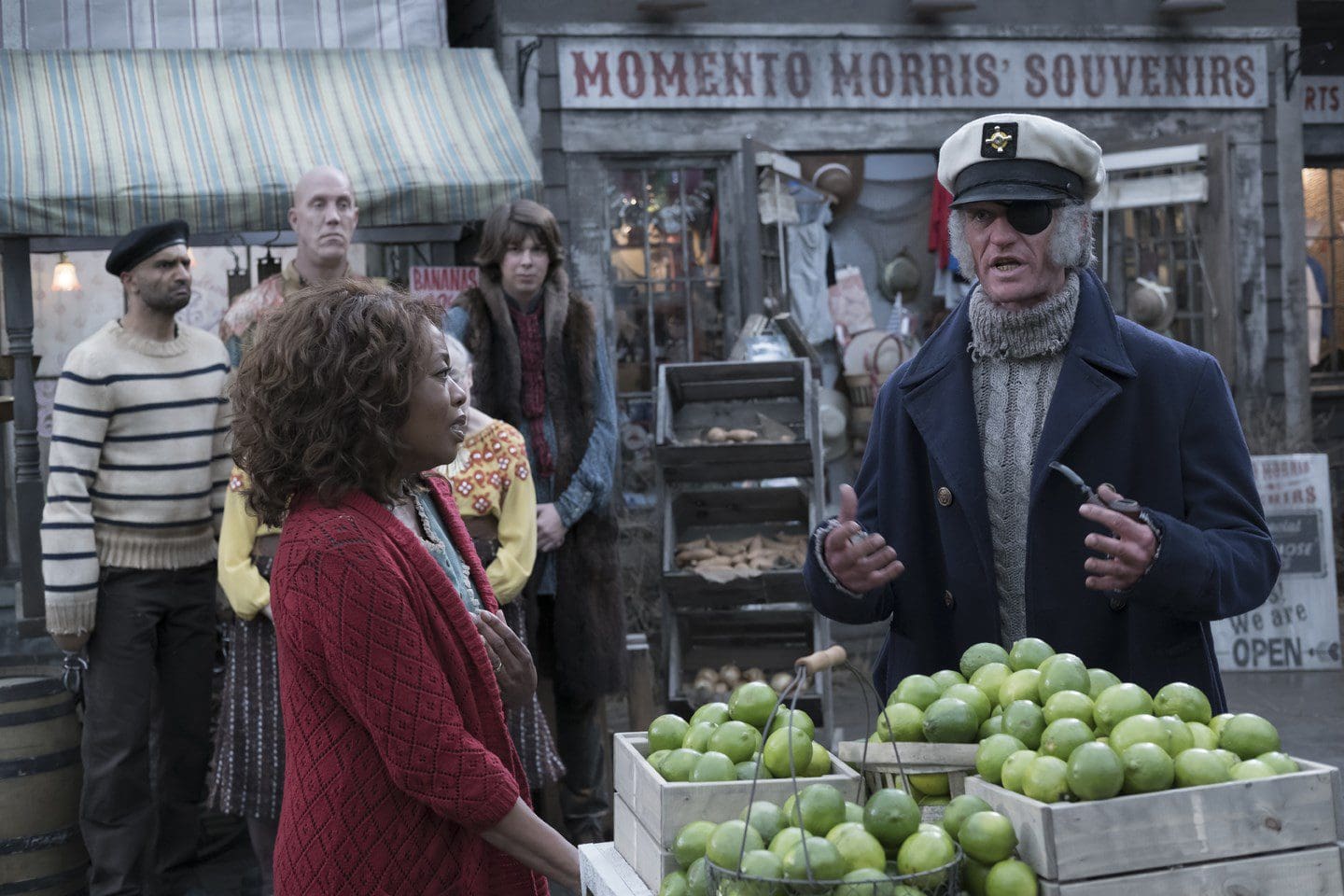Written by Matt Gilbert
 Say what you will about the 2004 adaptation of Lemony Snicket’s A Series of Unfortunate Events, but we can’t pretend it didn’t’ get some things right.
Say what you will about the 2004 adaptation of Lemony Snicket’s A Series of Unfortunate Events, but we can’t pretend it didn’t’ get some things right.
The overall tone and themes matched the original novels, the humor was on point and the acting was immensely enjoyable, not including the two main child performances. Jude Law could not have been the Lemony Snicket I pictured whilst reading the books in my youth any more and Jim Carrey’s performance as the villainous Count Olaf is still one of the most underrated parts of any young adult fiction adaptation this century. However, even watching Bruce Almighty perfectly strike the balance between a horrifyingly murderer and a living cartoon does not disguise the stilted child acting, the horrendous pacing and the simply overall terrible quality of the film.
Like many people my age, I grew deeply invested with Snicket’s black comedy saga during my elementary and middle school years while J.K. Rowling was between Harry Potter releases. I devoured A Series of Unfortunate Events within two years of starting it without realizing the sardonically dry humor it is embalmed in so that it never reaches the levels of melancholy it thinks of itself. Nor would I notice the way it glances over any moment of ever truly understanding its characters the way most books take great pains to achieve until years later.
In that regard, ASOUE makes for an exceptionally challenging text to adapt to screen as each of Snicket’s unorthodox and detailed choices of storytelling for the tale of the Baudelaire orphans departs ever further from anything a studio could bring to a Hollywood movie or that an audience could take from one. Fortunately, Snicket’s (real author Daniel Handler) vision is much better realized and brought to life on Netflix as a long-form television series. A Series of Unfortunate Events is unafraid to forego traditional conventions of screen-based storytelling in favor of a highly respectful adaptation.

Back when it was announced that the series would be brought to Netflix TV, my number one wish for a show runner was Wes Anderson for his uniquely dry humor juxtaposed against villainous circumstances that made The Grand Budapest Hotel so wonderful and the overall lack of seriousness he brings to his stories. An unrealistic hope, perhaps, but it seems Barry Sonnenfeld knew what I meant.
The pacing, cinematography, production design, soundtrack, characters and dialogue all feel highly reminiscent of Anderson’s work. The focus is primarily set on building a world that allows such unfortunate events to take place before it is set on the events themselves. The self-acknowledging silly methodology that made Pushing Daisies so remarkable feels very influential in the world Sonnenfeld has crafted here. It is also what allows for things like one-dimensional characters or potential continuity errors to be rendered virtually meaningless. The Baudelaires become removed as the primary protagonists in their own series and thus never feel like they need to be fleshed out.
The first season chronicles the initial four books in Snicket’s series (The Bad Beginning, The Reptile Room, The Wide Window, The Miserable Mill) splitting each book into two episodes. The splits allow each set of episodes to follow their corresponding book almost to the letter. Patrick Warburton serves as the author, Lemony Snicket, telling the story of the Baudelaires to the audience. Whereas Jude Law would enunciate every phrase with punctuated emphasis on each particular word, like a friendly and kind storyteller, Warburton takes much of the same dialogue and delivers it in his dry, monotonous droning that somehow serves to make each unexpected punchline that much funnier.
These first eight episodes also introduce a plot involving Snicket himself and strongly hints at a connection between him and the Baudelaires, though we are not yet told what that connection is. The funniest parts of the series all involve Snicket interrupting the Baudelaire story with an interjection or to illustrate a particular feeling or phrase or idea. Warburton is essentially the polar opposite of Law in terms of how he characterizes Snicket, but he is somehow equally perfect for it.
Of course, the star performance in the series is Neil Patrick Harris as Count Olaf. Harris would not have been my first choice for the iconic villain (I was hoping for John Malkovich), but he is undeniably a great one. From his first scene, Harris immediately becomes the center of the series, and he only gets better. Harris’ Olaf is as eccentric as he is energetic.

Similar to many of the 43-year-old actor’s previous roles, he is an outright moron while simultaneously being astounded by his own genius. He follows the orphans from guardian to guardian, donning increasingly convoluted personas and hatching nefarious plans. Harris’ energy and charisma makes much of Olaf’s dialogue laugh out loud funny, but he also does not lack when it comes to showing his dark, murderous, evil side. Credit must really be given to Harris for taking a role that clearly demands a great deal of commitment and energy and making it look as easy and natural to him as his character Barney Stinson on How I Met Your Mother.
Apart from Harris, Malina Weissman and Louis Hynes have great chemistry as brother and sister Violet and Klaus Baudelaire. They fit the characteristics assigned to their respective characters comfortably, although they bring enough personality to each of them that they are never just vehicles for the series’ own dialogue. Aasif Mandvi plays Uncle Monty in “The Reptile Room” and bursts on screen with immediate charisma and vitality. Mandvi’s energy and comedic talent allow Monty to be a virtual inverse of Count Olaf in every regard. Joan Cusack has a minor role as Justice Strauss in “The Bad Beginning” and disappointingly comes off as bland and unimpressive. Alfre Woodard joins her second Netflix series as the irrationally paranoid Aunt Josephine. Perhaps it’s wrong to judge so harshly when the last incarnation of the character was played by the Meryl Streep, but Woodard’s performance feels very forced and rather annoying.
Finally, K. Todd Freeman plays the bumbling nitwit/executor of the Baudelaire parents’ will, Mr. Poe. Mr. Poe was never meant to be remotely intelligent, but he literally seems too moronic to be a human being. Freeman plays the blissful ignorance well, but I never look forward to him coming back on screen just to see how he will mess things up next.
In addition to the surface plot of Olaf and the Baudelaires, each episode is packed with easter eggs and references from the series that fans of the books will be happy to spot. The series takes several opportunities to wink at itself like describing a cake as “lemony” or multiple instances of words starting with “VFD” being dropped into the dialogue without warning.

However, as just about any fan of the books can tell you, the first eight or nine books are fantastic, but the series seems to truly lose track of itself in the later installments with too many unanswered questions about secret societies and their activities before and after the Baudelaires became orphans (seriously, what was the sugar bowl?!). It made for a truly frustrating end to the novels that made fans think maybe it should have ended after Book 9.
Fortunately, the TV series introduces a subplot with two surprise characters that seems to already be amending and improving the later events in the series. If the show runners can make the new plot work, then I look forward to seeing the next four books, my favorites in the series, brought to life in this way and whatever else Sonnenfeld and Snicket have in store.
A Series of Unfortunate Events does not go to the lengths Luke Cage or House of Cards does to be a carefully directed artistic work more comparable in filmmaking quality to an Oscar-winning movie than television. However it is exceptionally well crafted and feels very safe to sit back and get lost in the silliness of Lemony Snicket and Barry Sonnenfeld from episode to episode. It takes all the right lessons from the 2004 film and improves on mostly everything else.
The Wes Anderson-esque aesthetic and narrative style bars the series from having universal appeal the way Stranger Things does and therefore is unlikely to become anyone’s new favorite show, but it is incredibly faithful to the original novels and makes for a very fun dramady. A word which here means, “series with too much hilariously dry wit to be as tragic as it claims but too much murder and wickedness to be deemed light entertainment.”

